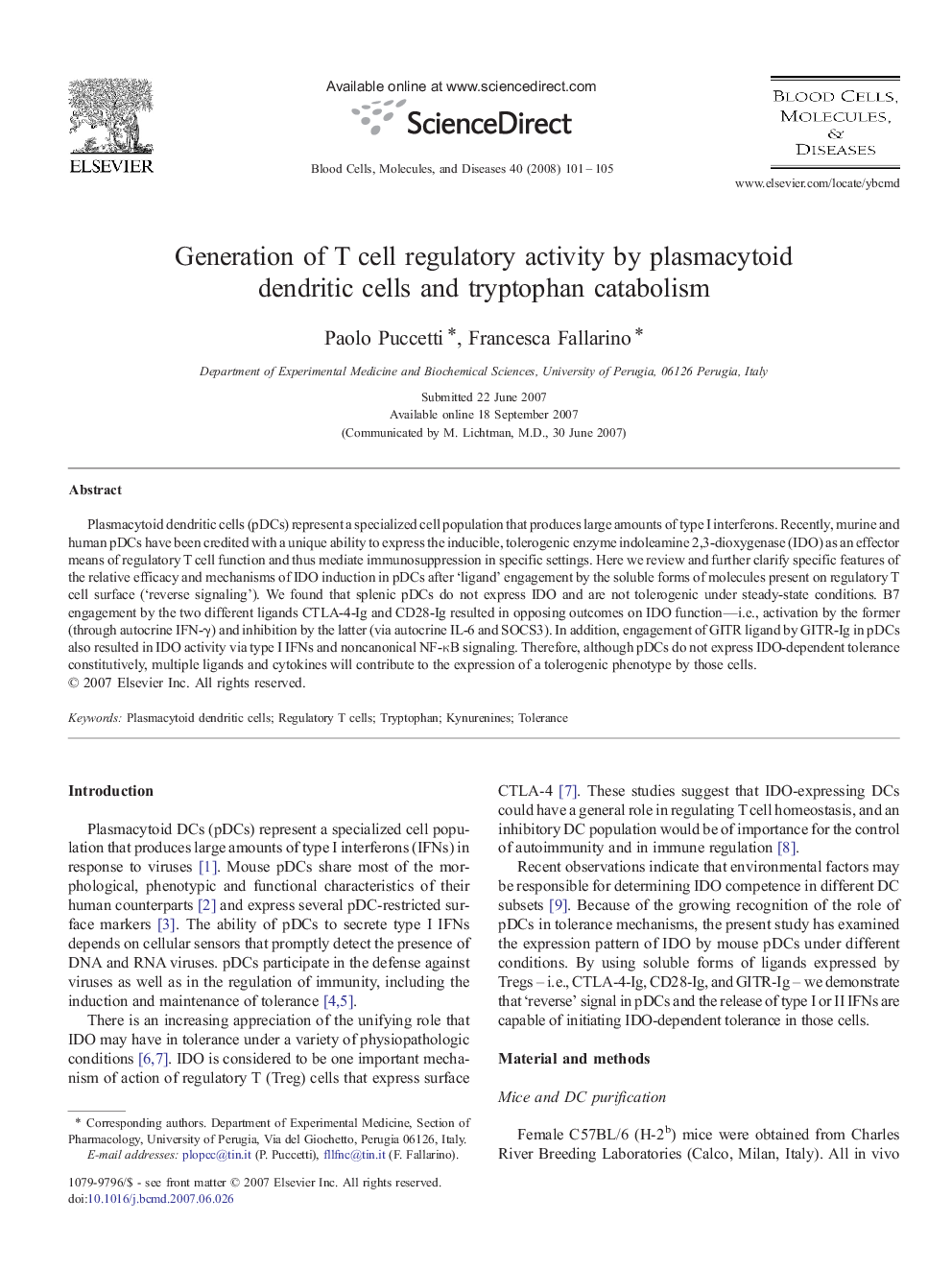| Article ID | Journal | Published Year | Pages | File Type |
|---|---|---|---|---|
| 2828094 | Blood Cells, Molecules, and Diseases | 2008 | 5 Pages |
Plasmacytoid dendritic cells (pDCs) represent a specialized cell population that produces large amounts of type I interferons. Recently, murine and human pDCs have been credited with a unique ability to express the inducible, tolerogenic enzyme indoleamine 2,3-dioxygenase (IDO) as an effector means of regulatory T cell function and thus mediate immunosuppression in specific settings. Here we review and further clarify specific features of the relative efficacy and mechanisms of IDO induction in pDCs after ‘ligand’ engagement by the soluble forms of molecules present on regulatory T cell surface (‘reverse signaling’). We found that splenic pDCs do not express IDO and are not tolerogenic under steady-state conditions. B7 engagement by the two different ligands CTLA-4-Ig and CD28-Ig resulted in opposing outcomes on IDO function—i.e., activation by the former (through autocrine IFN-γ) and inhibition by the latter (via autocrine IL-6 and SOCS3). In addition, engagement of GITR ligand by GITR-Ig in pDCs also resulted in IDO activity via type I IFNs and noncanonical NF-κB signaling. Therefore, although pDCs do not express IDO-dependent tolerance constitutively, multiple ligands and cytokines will contribute to the expression of a tolerogenic phenotype by those cells.
